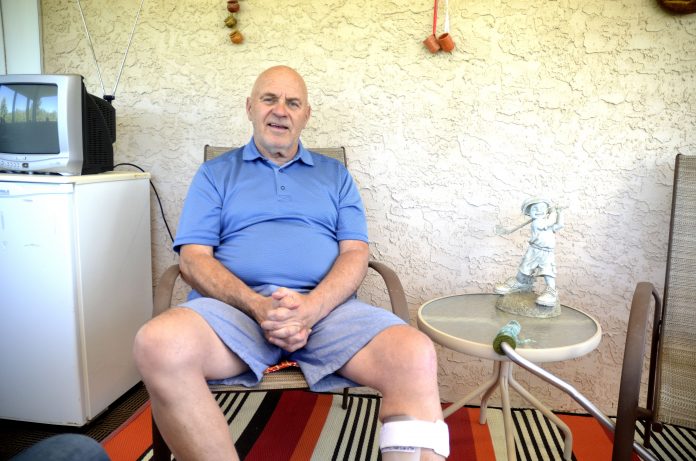
All Zenon Markowsky wanted to do was go fishing, play golf and play catch with his grandson.
Three years ago, that seemed like nothing more than a pipe dream.
After a playoff game during the Prince Albert Mintos 2014 season, Markowsky, the team president, suffered a stroke.
Mike Mazurak, a board member, and Don Fachoux, team manager, were by his side immediately. They recognized the signs of a stroke, and called 911.
Markowsky’s speech was slurred. He couldn’t walk, and had no use of the left side of his body.
Had Mazurak and Fachoux not acted as quickly as they did, the damage would have been a lot worse.
From that day forward, Markowsky has worked on his recovery. It’s been a long, hard journey, but with the support of medical staff, friends and family, and through his own hard work, he has come a long way since that night three years ago. He golfs regularly, and fishes. He has regained the use of his left leg, and partial use of his left hand.
From his grip strength, you wouldn’t know he ever went without.
“After the stroke, I spent six weeks at the Victoria Hospital, and really did not know to what extent – or even what a stroke was really, until I started to recognize that I didn’t have any functions,” Markowsky said.
“I didn’t have any functions. My speech was slurred. I couldn’t walk, and I had no use of the left side of my body. But I had tremendous support from the hockey team, from my family and friends. I have a lot of people who have been really encouraging and positive for me, and I’ve had some excellent care. The people at the Vic Hospital were tremendous for me.”
Markowsky’s story isn’t uncommon in terms of what he went through. However, according to the Heart and Stroke Foundation, the support he received isn’t available to every Canadian who needs it.
The foundation released their annual report on the state of stroke care in Canada Tuesday, where it examined the recovery journeys of the 400,000 Canadians living with long-term disability from stroke.
The foundation expects that will double in 20 years. Those living post stroke face symptoms from mild to severe. It can take years for people to heal, if they ever recover.
For people like Markowsky living in major centres, it’s easier to access care. But for those in the surrounding rural areas, and in the country’s north, it’s harder to access needed resources.
That’s bad news. Half of all those living with stroke need help with daily activities, such as eating, bathing, dressing, going to the washroom and getting around.
That’s where the support of family and friends comes in.
For more on this story, please see the June 8 print or e-edition of the Daily Herald.

